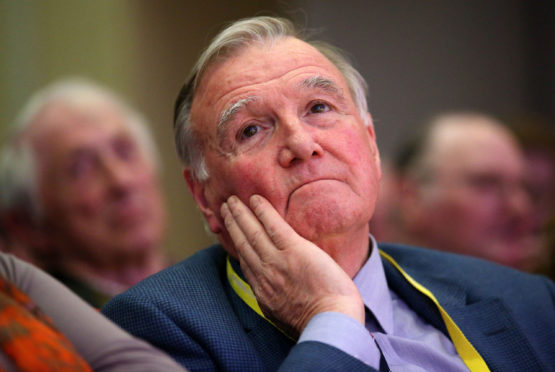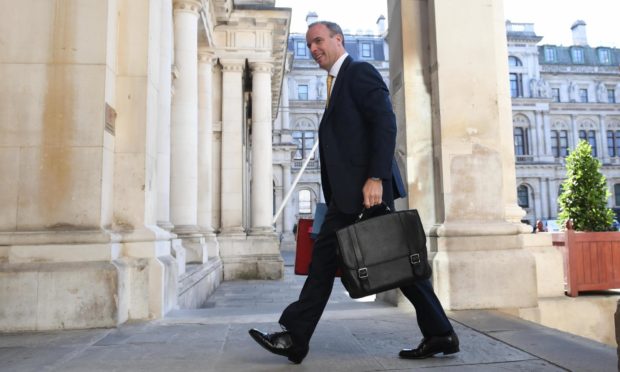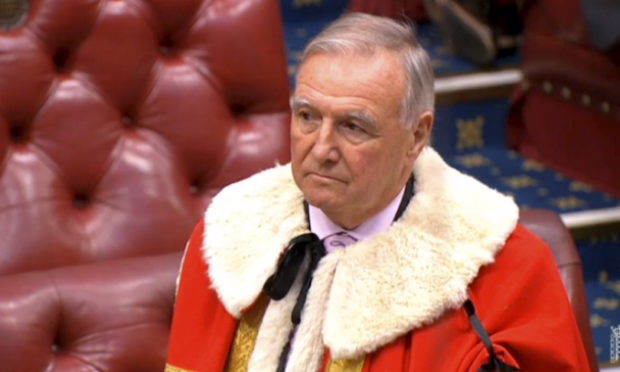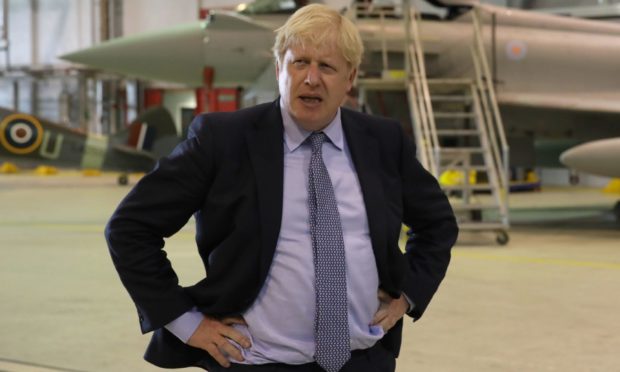Cutting overseas aid will increase suffering across the world and destroy the UK’s reputation as a compassionate and generous country, a peer has warned.
Sir Malcolm Bruce said the Conservative government displayed neither “coherence nor integrity”, and was telling the rest of the globe its policy was now “British first”.
The former Gordon MP and deputy leader of the Liberal Democrats served as chairman of the international development committee at the Commons from 2005 to 2015.
He was speaking on Wednesday as the new Foreign, Commonwealth & Development Office was officially inaugurated, following the controversial axing of the Department for International Development.
Foreign Secretary Dominic Raab used the launch of the merged department to announce a new, £119 million aid package to tackle the impact of the pandemic and famine.
But The Times reported that the Treasury was moving to end a pledge that commits Britain to spending 0.7% of national income on development projects, in order to divert the cash to defence and security schemes.
Sir Malcolm said the aid budget would be cut anyway because of the economic downturn, and he was “highly suspicious” about the intentions of a government that he claimed often “shows neither coherence nor integrity”.
He said: “We’ve had a 20% decline in GDP during this crisis, and that means, because it is entirely dependent on GNI (gross national income), the budget is cut.
“A substantial squeeze is going on anyway, because of Covid, so already poor people are going to suffer.
“The government have prioritised some of the Covid effects on poor countries, and I welcome that, but the question is, can that be maintained on a reduced budget?
“But much more to the point, if they start to divert money away to defence or security, or other issues, by definition that money is not available to support programmes.”
Sir Malcolm claimed the strategy appeared to be driven by the politics of the Conservative government, and “what bones they want to toss to their base in the UK”.
He added: “The other thing is the danger of short-termism. Quite a lot of these programmes require to be planned and implemented over several years before they really have impact, because that is the way they work.
“If these are chopped and changed every few months on a political whim, then the effectiveness of the programmes is greatly weakened and, yes, funding will be cut off or disrupted and people will suffer.”
Sir Malcolm said the “bottom line” was that it was a “statement about what kind of country we are”.
The peer said: “It looks as if Boris Johnson is basically facing the world and saying, ‘you thought we were a compassionate, generous, engaged country? Well, forget about it. We’re British first now, thank you very much’.”
However, Mr Raab said on Wednesday that the UK would use its diplomatic levers and aid expertise to build a stronger international consensus to fight back against the impacts of coronavirus, conflict and climate change.
The newly-announced £119m aid package aims to help alleviate extreme hunger for more than six million people in Yemen, Democratic Republic of Congo (DRC), Somalia, Central African Republic, the Sahel, South Sudan and Sudan.
We can only tackle these global challenges by combining our diplomatic strength with our world-leading aid expertise.”
Sir Malcolm Bruce
The foreign secretary said: “Coronavirus and famine threaten millions in some of the world’s poorest countries, and give rise to direct problems that affect the UK, including terrorism and migration flows.
“Global Britain, as a force for good in the world, is leading by example and bringing the international community together to tackle these deadly threats, because it’s the right thing to do and it protects British interests.
“We can only tackle these global challenges by combining our diplomatic strength with our world-leading aid expertise.”



